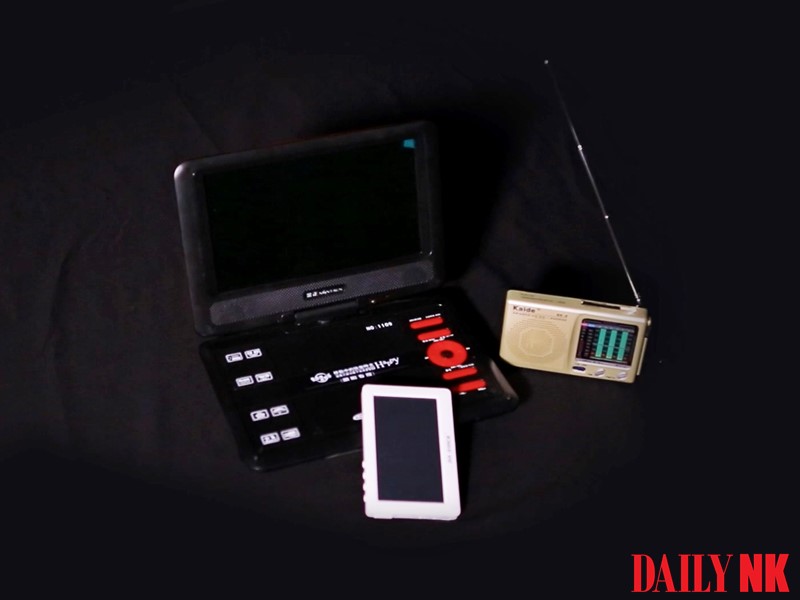 FILE PHOTO: Popular devices for consuming media in North Korea (portable media player, radio, and mp4 player.) (©Daily NK)
FILE PHOTO: Popular devices for consuming media in North Korea (portable media player, radio, and mp4 player.) (©Daily NK) Since the suspension of major radio broadcasts aimed at North Korea, such as Radio Free Asia (RFA) and Voice of America (VOA), the flow of information from the outside world into North Korea has drastically declined, transforming how public opinion is formed in the country and changing public mindsets.
“In the past, close friends would secretly share what they heard on the radio, but now nobody does,” a source in North Hamgyong province told Daily NK recently. “Neighborhoods have grown quite silent since the broadcasts ended, and far fewer people talk of the outside world.”
With radio broadcasts aimed at North Korea operated by South Korea’s National Intelligence Service and the South Korean military also being suspended, along with RFA and VOA, the ability of North Korean society to form unofficial opinions has also weakened as major windows to absorb information from the outside world close.
State security officials spread false rumors as fact
In the vacuum left by the disappearance of external information, a rather “odd” phenomenon is emerging in North Korea, as groundless rumors spread more easily.
“Unverified stories are going around, though some people don’t believe them, calling them merely conjecture by a handful of people,” the source said. “In particular, groundless rumors started by state security officials are accepted as hard fact.”
This demonstrates that the state is manipulating public opinion in its favor by disseminating false information. With the disappearance of news and information from the outside world, state propaganda and baseless rumors are more able to take their place.
Some worry that if access to outside information ends, North Koreans may be more likely to accept state propaganda uncritically rather than think and judge on their own.
“News from the outside world learned through the radio was an important device for easing (North Korea’s) information imbalance,” the source said. “If these channels close, falsehoods and distrust will grow within the society.”
The North Korean authorities have long mobilized technological and systemic devices to prevent external information from reaching their people. By erecting an “information firewall” through technology and systems, they have blocked the flow of information from the outside world and intensified control over the public.
For example, the Radio Wave Control Law enacted in 2006 makes it a crime to remove the locks on North Korean TVs or radios and point them toward other channels or frequencies.
Nevertheless, North Koreans have acquired news and information from the outside world by using various methods to evade the authorities’ controls. In border regions, people would climb mountains where the reception was better to listen to radio broadcasts at night. This “secret listening” of broadcasts went beyond mere curiosity—it reflected the people’s desire and will to be connected to the outside world in a closed society.
“You sometimes hear people say that things look bleak since they can’t hear news from around the world,” the source said. “But many people also express hope that while they can’t hear anything now, they believe something good will happen eventually.”
